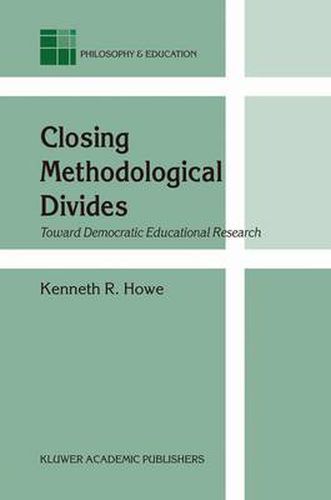Readings Newsletter
Become a Readings Member to make your shopping experience even easier.
Sign in or sign up for free!
You’re not far away from qualifying for FREE standard shipping within Australia
You’ve qualified for FREE standard shipping within Australia
The cart is loading…






This title is printed to order. This book may have been self-published. If so, we cannot guarantee the quality of the content. In the main most books will have gone through the editing process however some may not. We therefore suggest that you be aware of this before ordering this book. If in doubt check either the author or publisher’s details as we are unable to accept any returns unless they are faulty. Please contact us if you have any questions.
The interpretivist methodological framework made its appearance in educational research in the late 1970s, posing a fundamental and far-reaching challenge to the hitherto dominant positivist framework and opening up a number of divides that many have perceived as fundamental and unbridgeable. In the first part of the book Howe examines the issues involved and demonstrates that the divides can in fact be closed. The subsequent chapters set out the compatibilist perspective within which Howe analyses the interpretive turn, constructivist epistemology, research bias and ethics. The concluding chapter sets out a conception of democratic education research that shapes research methodology to meet the requirements of democratic politics.
$9.00 standard shipping within Australia
FREE standard shipping within Australia for orders over $100.00
Express & International shipping calculated at checkout
This title is printed to order. This book may have been self-published. If so, we cannot guarantee the quality of the content. In the main most books will have gone through the editing process however some may not. We therefore suggest that you be aware of this before ordering this book. If in doubt check either the author or publisher’s details as we are unable to accept any returns unless they are faulty. Please contact us if you have any questions.
The interpretivist methodological framework made its appearance in educational research in the late 1970s, posing a fundamental and far-reaching challenge to the hitherto dominant positivist framework and opening up a number of divides that many have perceived as fundamental and unbridgeable. In the first part of the book Howe examines the issues involved and demonstrates that the divides can in fact be closed. The subsequent chapters set out the compatibilist perspective within which Howe analyses the interpretive turn, constructivist epistemology, research bias and ethics. The concluding chapter sets out a conception of democratic education research that shapes research methodology to meet the requirements of democratic politics.